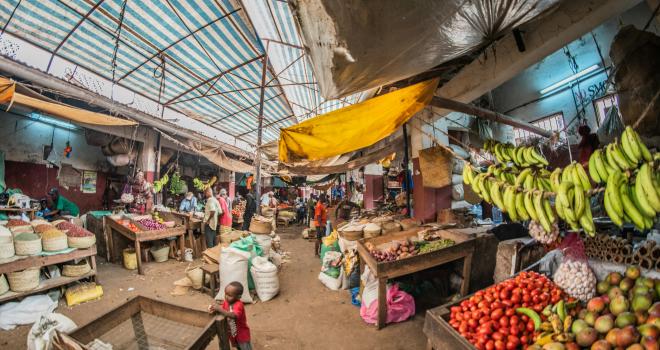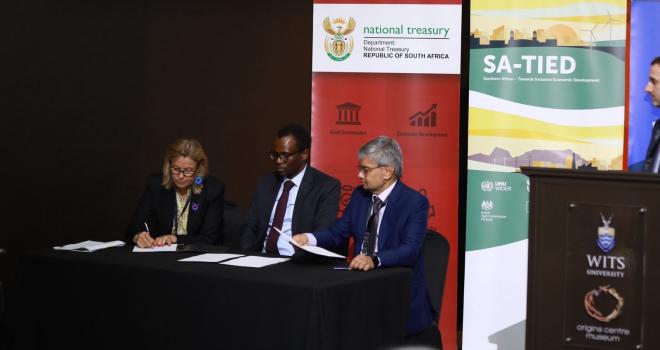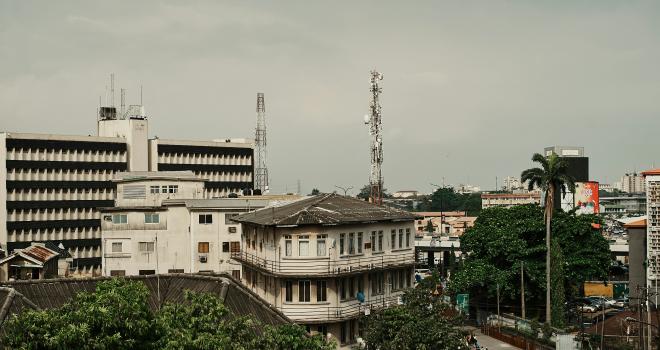Working paper
Given the rise in the government debt level in recent times, this paper aims to examine the effect of an increase in government size on risk premium and its transmission in the economy. We jointly...
APRIL 2024
Macro-fiscal analysis
Working paper
Rising globalization has exerted a downward pressure on global tariffs, thereby eroding tariff revenues in developing nations. We analyse how gains from lowering import tariffs are distributed within the firm and the corresponding tax (base)...
APRIL 2024
Public revenue
Research seminar
30 Apr 2024 / 16:00
to
17:00
Labour market and inequality
Join us for a session of the SA-TIED Seminar Series focusing on the topic of the COVID-19 Social Relief of Distress (SRD) grant. Led by Maya Goldman and Brynde Kreft, this seminar will address their...
News
UNU-WIDER Research Fellow Richard Kima, presents his work in progress Working Paper titled "Estimating the Macroeconomic Costs of Power Outages in South Africa" at the South African Reserve Bank Research Seminar on April 11, 2024...
April 2024
Macro-fiscal analysis
News
Carol Newman , co-academic lead for SA-TIED's Workstream 1 on Enterprise development for job creation and growth, will present an SA-TIED Working Paper titled "Worker mobility and productivity spillovers: An Emerging Market Perspective" at the...
April 2024
Enterprise development
Blog
In monetary policy communication, every word carries weight. Consider this scenario: the South African Reserve Bank (SARB) articulates its stance to anchor inflation expectations , yet this message undergoes subtle transformations when translated by the...
April 2024
Working paper
Using highly disaggregated customs-transaction-level data, we study the importer price effects of tariffs in the context of preferential trade agreements for South African imports of frozen bone-in chicken. We focus first on the firm-level impact...
March 2024
Enterprise development
Blog
Over the past decade, the interest rate that South Africa pays on its debt has consistently been above the economic growth rate. Mathematically, this means that debt grows as a percent of GDP. It becomes...
March 2024
Macro-fiscal analysis
News
The European Union (EU) has allocated EUR 2 million to the Southern Africa Towards Inclusive Economic Development (SA-TIED) programme, significantly boosting its support for evidence-based policymaking in South Africa. This financial backing was announced at...
March 2024
In the media
The recent S A-TIED policy dialogue on financing infrastructure development in the context of climate change brought together leading experts, policymakers, and stakeholders to address pressing challenges in climate-resilient infrastructure. This dialogue garnered significant media...
March 2024
Climate and energy
Policy dialogue
18 Mar 2024 / 14:00
to
16:00
Climate and energy
Join us for a policy debate in which leading experts and policymakers explore the future of South Africa's infrastructure in the context of climate change. This discussion will focus on the impact of climate change...
In the media
Featured on News 24, SA-TIED presented its recent research in the "SA's gender pay gap is getting bigger" article. The piece investigates the dynamics of the gender pay gap in South Africa, analysing income data...
March 2024
In the media
An SA-TIED Working Paper was recently spotlighted in Business Times. Authored by Roy Havemann and Hylton Hollander, the article critically examines South Africa's fiscal landscape over the past decade, exploring key challenges faced by the...
March 2024
Macro-fiscal analysis
Blog
Sub-Saharan Africa has abundant natural resources and a substantial market, with an estimated population of 1.2 billion. The population is projected to grow by nearly 80% and reach almost 2 billion people by 2043. This...
February 2024
Blog
New analysis of income data in South Africa shows the gender pay gap—how much more men earn than women—has increased. According to findings from a study conducted on the SA-TIED programme, in 2021, women in...
January 2024
Public revenue
Blog
South Africa ranks as the world’s most unequal country by income. This is largely due to high wage inequality, given that wages are the main income source for the majority of the working population. Exploring...
January 2024
Labour market and inequality














